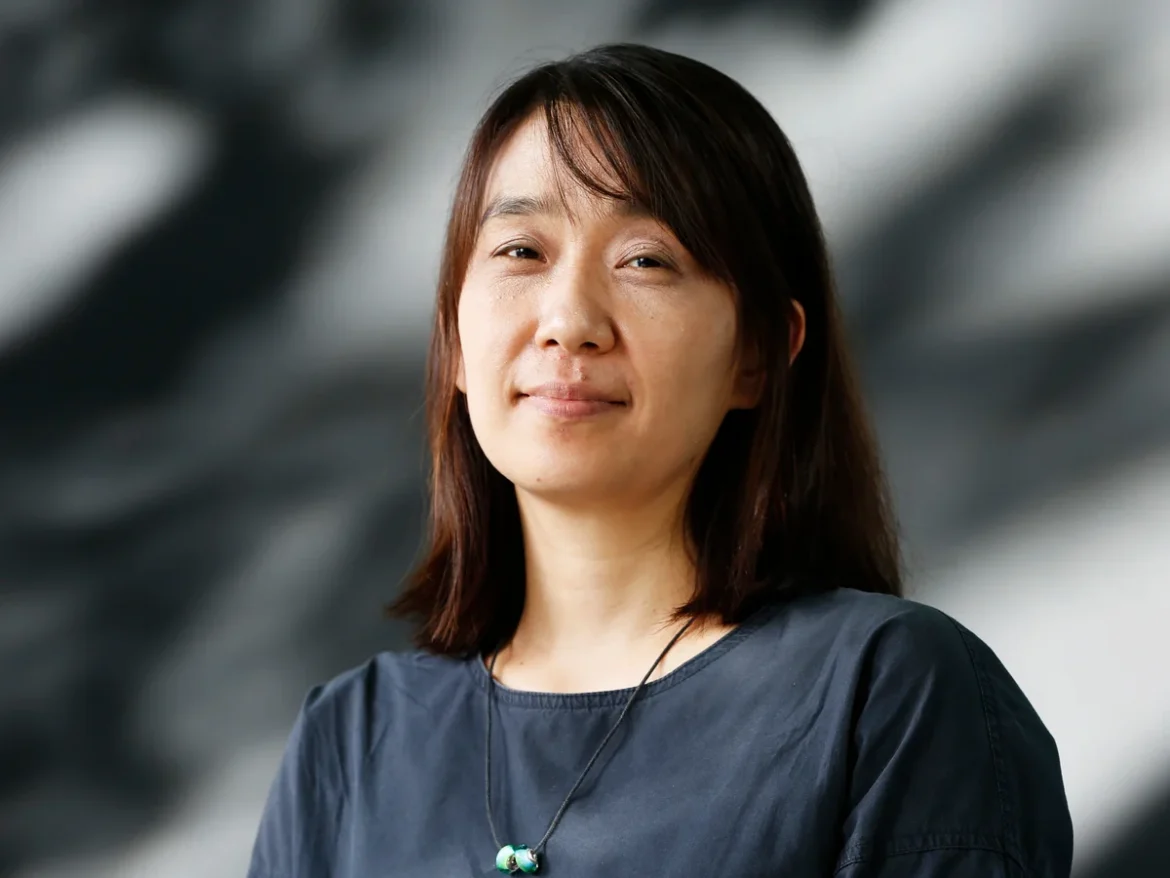South Korean author Han Kang has been awarded the prestigious Nobel Prize in Literature, making her the first South Korean writer to achieve this honor. The Nobel Committee praised Han, 53, for her “intense poetic prose that confronts historical traumas and exposes the fragility of human life.” Her literary works, known for their profound exploration of human suffering, violence, and identity, have earned her global recognition and widespread acclaim.
Han Kang’s Journey to the Nobel Prize
Han Kang, who won the Man Booker International Prize in 2016 for her novel The Vegetarian, has continued to make waves in the literary world. Her Nobel recognition marks a significant milestone, both in her career and for South Korean literature. The Nobel Prize, awarded annually since 1901, is one of the highest honors in literature, and Han Kang’s victory this year is a testament to her remarkable contributions to the world of fiction.
At the award ceremony, the Swedish Academy commended Han for her ability to confront historical traumas and challenge societal norms through her “poetic and experimental style.” The Academy’s chair, Anders Olsen, lauded her as an innovator in contemporary prose, praising her unique awareness of the connections between body and soul, life and death. This year, the Nobel Prize comes with a reward of 11 million krona (approximately £810,000).
Breaking Boundaries with Bold Themes
Han Kang’s works are known for pushing boundaries, tackling difficult and often disturbing themes such as violence, grief, and patriarchy. Her 2007 novel, The Vegetarian, which won her the Man Booker International Prize, explores the life of a woman who, after a violent dream, decides to stop eating meat, rejecting societal norms. This decision has dramatic and violent consequences for her and those around her. The book was initially written in Korean and translated into English by Deborah Smith in 2015, gaining international attention soon after.
In addition to The Vegetarian, Han Kang has written other acclaimed works, including Human Acts, a harrowing exploration of the 1980 Gwangju Uprising and its impact on individuals and society, and The White Book, a poetic meditation on life, death, and loss. Her most recent novel, Greek Lessons, continues her exploration of deep philosophical questions, further cementing her place as a leading voice in modern literature.
First South Korean Nobel Laureate in Literature
Han Kang’s Nobel Prize win is a historic achievement for South Korea. She is the first South Korean author to receive the award, highlighting the growing global influence of Korean literature. The Nobel Committee’s statement also acknowledged her devotion to both art and music, emphasizing her ability to cross boundaries and genres, adding a unique depth to her literary voice.
Born in Gwangju, South Korea, Han is the daughter of novelist Han Seung-won and was raised in the vibrant literary culture of her home country. She moved to Seoul at a young age and studied Korean literature, which laid the foundation for her writing career. Han Kang first published poetry in 1993 before debuting her first short story in 1994. Her early success in fiction led her to become a prominent figure in South Korean literature.
A Global Literary Icon
With her works translated into more than 30 languages, Han Kang has become a literary force worldwide. Her novels resonate with readers from diverse cultures, as they explore universal themes of identity, trauma, and humanity. In addition to her writing career, Han has taught creative writing at the Seoul Institute of the Arts, where she has inspired a new generation of writers.
At the ceremony, Mats Malm, the Swedish Academy’s permanent secretary, noted that Han was not fully prepared for the magnitude of winning the Nobel Prize, though it was clear that her body of work has had a profound impact on literature globally. Malm also highlighted her ability to “confront invisible rules and expose the fragility of life.”
A Milestone for Female Authors
Han Kang is the first female Nobel laureate in literature since French author Annie Ernaux won the prize in 2022. This year’s award also marks only the 18th time a woman has won the Nobel Prize in Literature since its inception. Han joins the ranks of notable female laureates such as Toni Morrison, Doris Lessing, and Alice Munro, further solidifying her legacy as a trailblazing author.
The Nobel Prize in Literature is awarded for a writer’s entire body of work, rather than a single novel, making Han Kang’s recognition this year a celebration of her contributions to world literature over the decades. Her innovative prose, combined with her deep exploration of the human condition, has earned her a well-deserved place among the literary greats.
Conclusion
Han Kang’s Nobel Literature Prize marks a significant achievement not only for her career but also for South Korea’s literary scene. Her works have touched readers worldwide, providing a voice to themes of trauma, identity, and human fragility. With this honor, Han Kang has cemented her place in the annals of global literature, inspiring readers and writers alike.
Stay connected to know more on arcnews.online for global news like South Korean author Han Kang Receives Nobel Literature Prize This Year. For videos updates visit our YouTube. Do subscribe to Arcnews to get latest updates directly in your mail box.
Have A Great Day.


